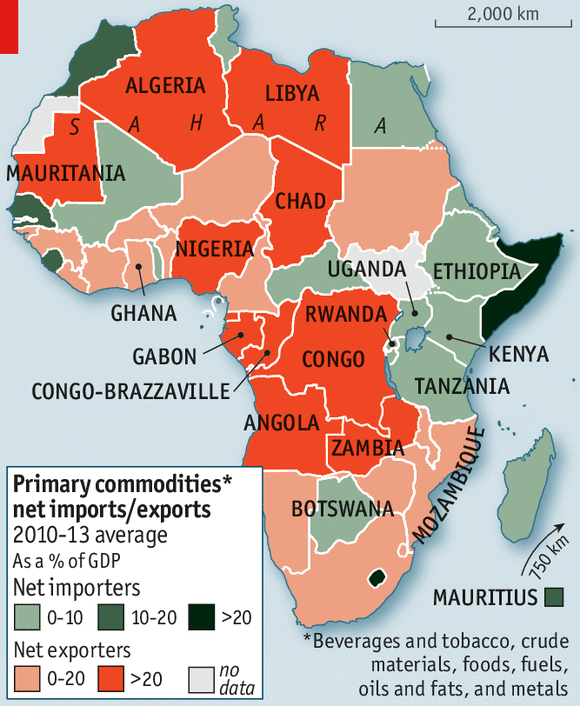I quote at length from an article in The Economist:
Over the past decade Africa was among the world’s fastest-growing continents—its average annual rate was more than 5%—buoyed in part by improved governance and economic reforms. Commodity prices were also high. In previous cycles African economies have crashed when the prices of minerals, oil and other commodities have fallen.......
Since last year the price of oil has fallen by half and many metals such as copper and iron ore have also dropped sharply........
In some economies large drops in commodity prices have led to currency falls. At least ten African currencies dropped by more than 10% in 2014. But there have been few catastrophic depreciations. This suggests that investors do not see lower commodity prices as a kiss of death.......
One reason currencies have been robust may be because economic growth is starting to come from other places. Manufacturing output in the continent is expanding as quickly as the rest of the economy. Growth is even faster in services, which expanded at an average rate of 2.6% per person across Africa between 1996 and 2011. Tourism, in particular, has boomed: the number of foreign visitors doubled and receipts tripled between 2000 and 2012.......
What explains Africa’s increasing economic diversification? A big pickup in investment helps. That has arisen partly because governments have worked hard to make life better for investors. The World Bank’s annual “Doing Business” report revealed that in 2013/14 sub-Saharan Africa did more to improve regulation than any other region......
Better fiscal policy also plays an important role. Commodity markets are volatile; government spending smooths out the booms and busts......
(T)here is reason to think the “resource curse” is losing its power. Despite turmoil in commodity markets, Africa is still one of the world’s fastest-growing regions. With better education systems, investment in infrastructure and sensible regulatory reforms, the continent could completely break the spell that has held it back so often in the past.I can't vouch for the accuracy of the forecasts made in this article; indeed, forecasting is notoriously difficult. Still, it is more optimistic than I would have expected. Africa has long suffered from a lack of economic development, and as a consequence too many Africans have lived for too long in extreme poverty. Let us hope that Africa will continue to progress economically, and that the benefits of that progress will be widely shared, reducing the worst aspects of poverty on the continent!

No comments:
Post a Comment